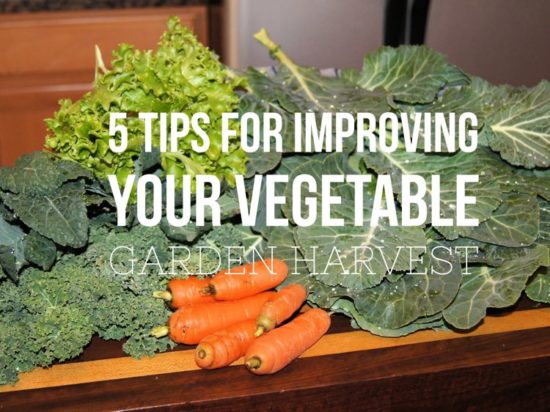
Let’s face it: growing a vegetable garden rocks! So much, it could even become your hobby. Just think, every growing season you can harvest fresh vegetables. And remember, there are several growing seasons, depending on your climate. That’s almost growing your own food year round! Here are some simple tips that will help you on how to grow vegetables.
Tip #1: Rotate your crops.
Just change your plant’s growing location each year. Plants that come from same family like peppers, eggplants, tomatoes, and potatoes must be rotated in different locations in the garden. Rotating them will prevent your plants from pests and diseases.
Bugs are pretty smart. They lay their eggs at the bottom of the plant, so the hatching larvae will have food. But, the garden pest will not survive if it doesn’t have the right food source. Just rotate those crops every year. That way you don’t feed the larvae!
Tip #2: Plant your vegetables with proper spacing.
Don’t plant vegetable plants too close to each other. You don’t want their roots to compete for soil nutrients and water, and you want enough room for their hidth and width of a mature plant. It’s easier if you plant your vegetables according to their height and width.
Once you get use to growing vegetables, you can stray from the vegetable spacing recommendations just a little. Check out this page on intensive gardening, and this one on square foot gardening.
Tip #3: Water plants properly, meaning consistently.
We all know that water is very important in all growing plants, really to everything! It starts with the seeds. They must keep moist to generate properly. And make sure not to over water your plants, or else you will not achieve the desired outcome with your vegetable plants. Just water deeply and regularly. You don’t want to underwater, then overwater. Trust me, they won’t like that.
Tip #4: Stake your vegetable plants.
There are plants that cannot support themselves, like vine tomatoes, cucumbers, peas and pole beans. Provide a cage, stake, or trellis that will help keep them off the ground. Keeping vegetables off the ground, keeps them from getting dirty, rotting, or getting pests.
Tip #5: Mulching is a great tip, too.
Don’t forget to mulch. Mulch comes in many forms. It will serve as a protective covering that will also reduce evaporation, maintain the soil temperature, enrich the soil, and prevent it from weeds.
Vegetable gardening is a wonderful idea! Plus, at the end you can reward yourself for achieving the successful garden you’ve wanted. Aside from that, you’re also giving your family the best vegetables in the town! Sit back on that patio, slice that tomato, and enjoy looking over your vegetable garden!

